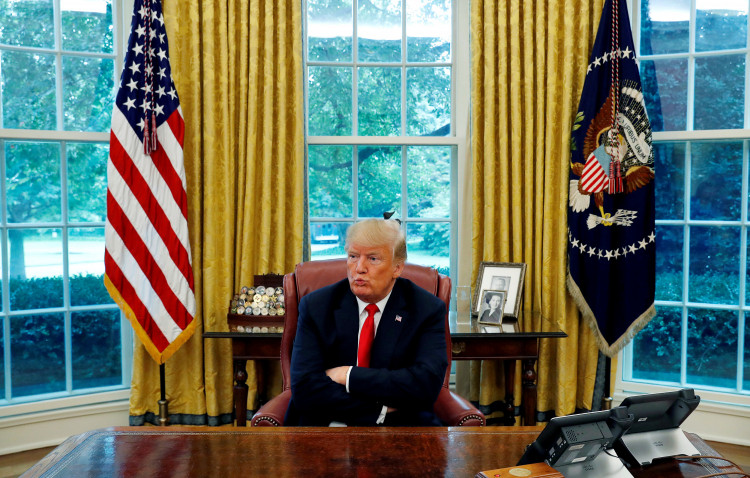U.S President Donald Trump has dropped a hint that he may proceed with slapping fresh tariffs on $200 billion Chinese goods, appearing to confirm information relayed exclusively by unnamed sources to Bloomberg.
Bloomberg directly asked the U.S. president during an interview in his Oval Office on Aug. 30. Trump just smiled and said the information relayed was "not totally wrong."
Six sources claiming direct knowledge of the matter told Bloomberg that Trump's decision may come next week, following six days of submission of comments and public hearings with companies and members of the public. They refused to be identified as the information being relayed remained confidential at present.
All concerned parties have until Sept. 6 to submit their comments. Trump's decision may come in the days after the said date. The fresh round of tariffs could range from 10 percent to 25 percent.
Bloomberg said some of the sources it spoke with warned that Trump's decision is not final yet and there are a number of possibilities that may happen. Key members of the administration are in fact still debating on the matter among themselves. U.S. Trade Representative Robert Lighthizer and White House trade adviser Peter Navarro suggested for immediate tariff implementation while Treasury Secretary Steven Munich and White House economic adviser Larry Kudlow argued that decisions should take time. The sources said another consideration is for tariffs to be imposed in installments.
The sources said the administration has yet to finalize the list of the products that are going to be affected. Reuters reported the fresh tariffs could impact home building supplies, technology products, apparels, and bicycles. It may even include selfie sticks and semiconductors.
China has previously threatened about retaliatory tariffs when this happens. Even without the retaliation from Beijing, however, analysts have been warning that Trump's tariffs have actually a direct damage to the very companies and sectors in the United States.
Most recently, CFRA Research strategist Lindsey Bell told CNBC that Apple is one among Washington's tech companies that will suffer the most if the US-China trade war aggravates. Bell explained that the companies that manufacture in China and sell in America, as in the case of Apple, are the ones at a perilous risk amid these trade escalations.
The Greater China is bringing 21 percent of Apple's sales and the company conducts most of its supply assembly in the country. It would be recalled that Apple suffered when its Chinese market wobbled between 2015 and 2016.
Meanwhile, the majority of imports passing through U.S. ports could face new tariffs if Trump went ahead with the new set of tariffs, The Washington Post reported, citing data from The Associated Press. Specifically, the tariffs will affect goods that are imported at over 250 seaports, ground terminals, and airports across 48 states.






